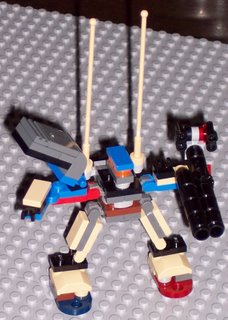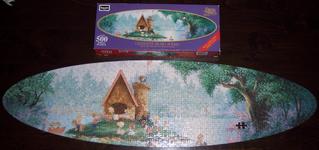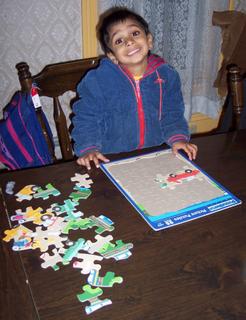I have two adult friends who keep insisting that they are "bad at math," all the while going on very competently about their lives (including managing household budgeting & accounting etc.). They seem to think that math is a world of symbols that exists all by itself in the ether. They had bad experiences with math in school, which convinced them that they are bad at math.
So what exactly is this thing called math? Math (at least at school level) is a system of symbols or a language representing reality. It is like a map or a linguistic representation of
real life. It follows that once a person has a good handle on quantities in real life, basic math -- i.e. the symbolic representation of stuff you do in real life with those quantities, such as baking -- should follow. What people seem to mean by math is manipulating abstract numbers. Manisha and I are convinced that it is folly to rush to abstraction too early. Here's the main problem: once you move to abstract numbers, the child loses the ability to do reality-checks. For example, Supriya can see that if you have 5 apples and get 5 more, you will have 10 apples. She can do this addition using her fingers & double-check her math visually. This does not hold true if she were to add 47 and 62. That comes later. It makes sense to move to abstraction only after the concrete foundation is set.
John Holt characteristically cuts to the chase,
"...when little children first meet numbers, they should always meet them as adjectives, not nouns. It should not at first be "three" or "seven," all by itself, but always "two coins" or "three matches" or "four spoons" or whatever it might be. There is time enough later, probably much later, for children to intuit the notion that the noun "five" is that quantity that all groups of five objects have in common." (Learning All the Time)
Right now Supriya is learning how to manipulate numbers in her head and, most importantly, develop trust in her own ability to do it consistently. We play with numbers off and on, and it's clear that she can connect with numbers smaller than about 25 or 30. They represent
real quantities to her, as opposed to a number like 79, which seems much more abstract and foreign and intimidating. As she stays with the process, she will become confident about her mental model of numbers and then be able to treat all numbers as abstract expressions of quantities. I will tread gently until then...









